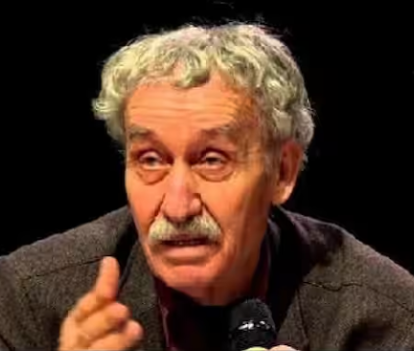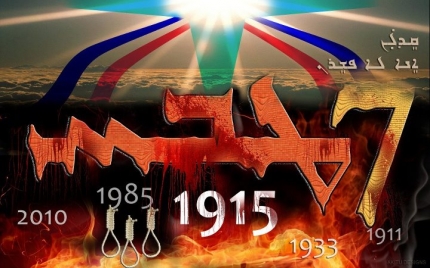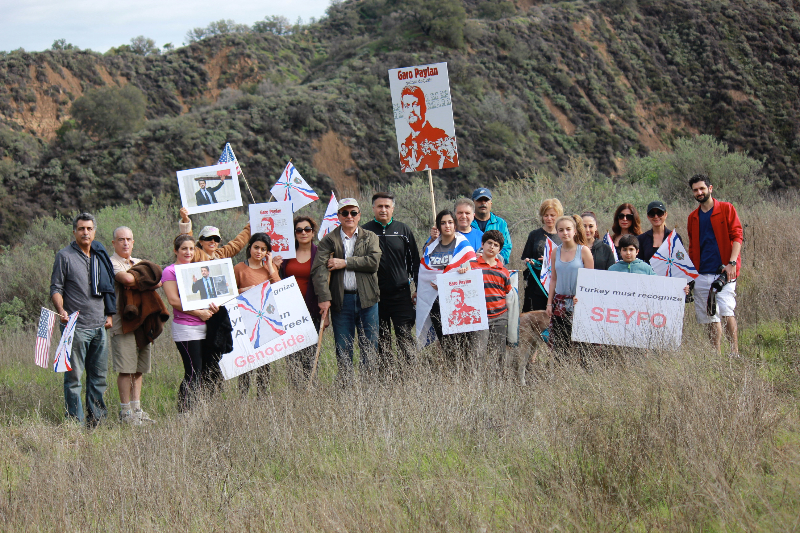Abdulmesih BarAbraham ===
The French Senate voted by a majority on Wednesday, February 8, in favor of a resolution calling on the government to recognize the genocide of the Assyrian-Chaldeans of 1915-1918 and to make the day of April 24 a joint day of commemoration for the Armenian and Assyrian-Chaldean genocides.
The proposal for the resolution was introduced by Senator Valérie Boyer (Member of the Republicans – LR) under the title „On the recognition of the genocide of the Assyro-Chaldeans of 1915-1918“, and was co-signed by LR Group leaders Bruno Retailleau and Hervé Marseille. It gained immediate support from more than 60 senators when it was recorded into the Senate on January 6, 2023.
At the session the Senate on Wednesday, the resolution was adopted by a vote of 300 to 2. It calls on the government „to officially recognize as genocide the mass extermination, deportation and suppression of the cultural heritage of more than 250,000 Assyro-Chaldeans by the Ottoman authorities between 1915 and 1918″ and “to publicly condemn the genocide.”
The resolution argues that combined and concerted extermination accounted for more than half of the population at the time, and was aimed at the negation of the Assyrian identity and its disappearance from the Ottoman region. This is underlined by the massive and systematic executions, the looting of the land and property of the Assyrian-Chaldean-Syriac population, and the systematic destruction of their cultural expression.
It is noted that in its five-page explanatory section, the resolution cites Professor Joseph Jacoub, author of several books and publications related to the Genocide (Assyrian: Sayfo – Sword or Year of the Sword) [1] as an expert, explaining that this “genocide and looting of land and property was accompanied by severe attacks on the cultural heritage: Historical monuments were destroyed and left abandoned, churches desecrated and schools demolished. Libraries of rare books and valuable manuscripts were squandered and destroyed, such as those of the Chaldean diocese of Seert or the Assyrian patriarchal seat in Kotchanes, a small village in Hakkari now abandoned, or the monasteries of the Syriac Churches in the Tur Abdin region.”
Valérie Boyer is cited by LeFigaro stating that France has “a protective role towards the Christians of the Orient, based on a long history that goes back to the [Ottoman] capitulations [2] signed by Francis I with Sultan Suleyman the Magnificent in 1535.”
“Unlike the Armenian Genocide, which has been recognized by many countries and international organizations and is considered one of the four genocides officially recognized by the UN, the massacre of the Assyrians still lacks recognition as a genocide,” the senator said. Senator Bruno Retailleau argued that the reason for this is the fact “that it is a people without a state, while undoubtedly also hesitations existed.”
Adding to that, Bruno Retailleau defended the recognition as “an act of truth in context of history, but also an act of resistance, both in the face of negationism and fatalism.” “It is not in the name of the past, it is in the name of the future, the future of a people without a state, but not without memory,” he added.
The LeFigaro article cites also Pierre Ouzoulias (CRCE with communist majority) commenting on the topic, saying that “as a minority among minorities, as the persecuted among the persecuted, as the forgotten among the forgotten, the Assyrian-Chaldeans have not ceased to suffer the consequences of the upheavals in the turbulent history of the Middle East. France, by recognizing the Armenian Genocide, which is not unique to Armenians, has not ignored them. The merit of this resolution is to link it more clearly with the tribute to all the dead of the genocide.”
Many Assyrian personalities and representatives from various institutions, among them Professor Jooseph Yacoub and the director of the Seyfo Center, Sabri Atman, were present during the Senate session. In a short statement distributed by Seyfo Center, the ongoing denial of the genocide by Turkey is considered as „the biggest obstacle to the healing of a deep and open wounds“ of the Assyro-Chaldeans. Therefore, „the recognition by the French Senate can be seen as very important step,“ the statement adds.
[1] See: http://www.aina.org/news/20161127175907.htm
[2] Contracts signed between the Ottoman Empire and other powers in Europe, particularly France




